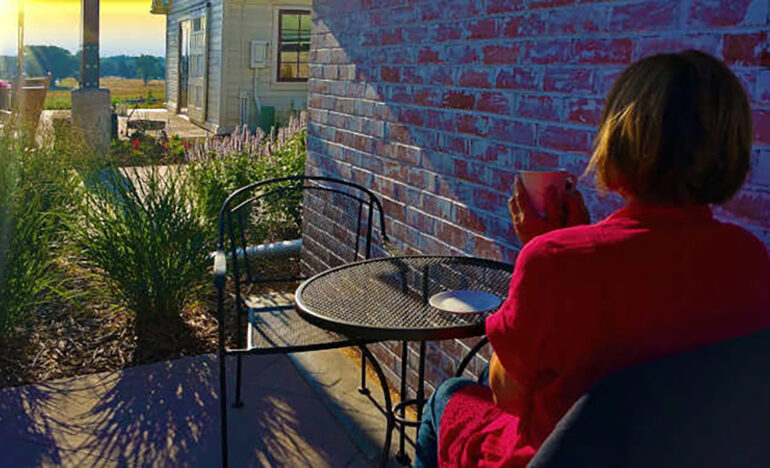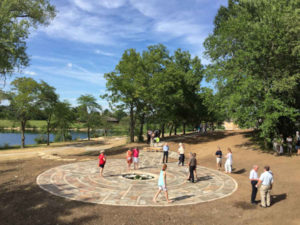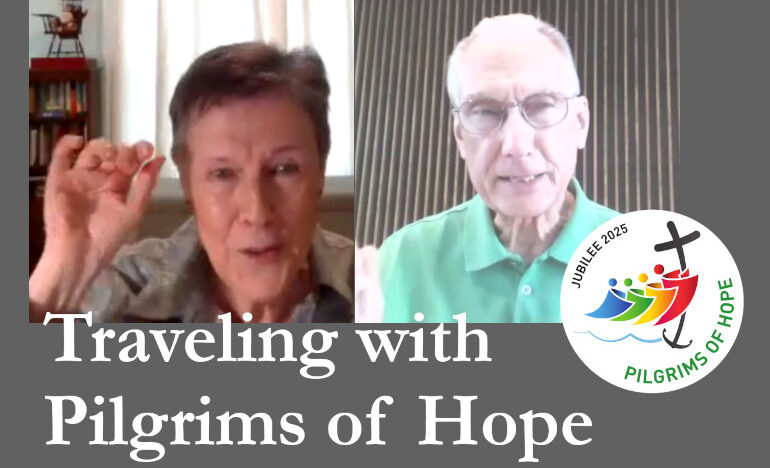A Spirituality of Discernment: Tending the Still, Small Voice

By Kathy Keary
Our full series in the Contemplative Prayer Video Series is here.
Revisit earlier articles in our Contemplative Life Series here.
Part 2 of 4. Find all the articles in the Discernment series here.
Embracing that we are the beloved of God is fundamental to the spirituality of discernment. We were created out of the unbounded love of our Maker. It follows then that our Creator relentlessly seeks us and attempts to capture our attention to lead us to abundant life. The instances when we are oblivious to God’s guidance are too many to count. Nevertheless, the divine keeps trying to reach us in a manner that speaks to us individually.
In the book, Discernment: Reading the Signs of Daily Life, Henri Nouwen provides a definition of this action:
Discernment is a spiritual understanding and experiential knowledge of how God is active in daily life that is acquired through disciplined spiritual practice. Discernment is faithful living and listening to God’s love and direction so that we can fulfill our individual calling and shared mission.
The spiritual practices that we have explored in An Invitation to Something New: The Contemplative Life are effective ways to open our hearts to the divine presence in our everyday life. Carving out alone time with God each day bears much fruit on the road to communion with the Sacred One. As the Letter of James states, “Draw near to God, and God will draw near to you” (James4:8).
Emptying ourselves is instrumental in setting the stage to receive the treasures God has in store for us. Richard Rohr in his book, Everything Belongs, reminds us: “When we are nothing, we are in a fine position to receive everything from God.” The following simple guided meditation can facilitate the clearing of our minds and souls to make room for the Holy One.
- Close your eyes and take a few deep breaths to calm any anxieties.
- Envision all preconceived ideas flowing from your body.
- Free yourself of all stress.
- Set aside any distractions that will not allow you to give your full attention to hearing the voice of your Creator.
- Release any attitude of inferiority or superiority.
- Let go of all biases.
- Free yourself of your will.
- Remove your agenda.
- Toss away your to-do list.
- Discard anything that prevents you from hearing the voice of God.
- Envision yourself as an empty container.
- Now that you are totally empty allow your Maker to fill you.
- Enjoy a period of extended silence to heighten your awareness of the divine whisper sensed with the ear of your heart.

Walking the labyrinth is also a powerful tool to empty ourselves to be open to divine communication. I refer you to our second article in the series pertaining to the labyrinth for suggestions on increasing the spiritual impact of a labyrinth walk. The same principles apply to finger labyrinths, an effective substitute when a walking labyrinth is not available. Labyrinth patterns are available for copying here.
Following his baptism, Jesus retreated to the wilderness to absorb the gifts offered with silence and solitude as he prepared to tend to the will of the Father in active ministry. He preached that the kingdom of God lies within each of us. Throughout his time on earth, tending to his inner life was key and offers an invitation for us to do likewise.
I mentioned in our last article that I was not in prayer, when I distinctly heard God ask me if I would devote my life to him. At the time though, my life was centered in prayer. As a morning person, I spent the first fruits of my day communing with the Sacred One. Being faithful to a prayer routine sets the stage to hear the whisperings of our soul that surface throughout the day.
In our busy lives in our fast-paced, noisy world, how do we capture moments of silence and solitude that will allow us to hear the inner stirrings of our heart? Perhaps the answer for you is to wake up before everyone in the house begins rumbling around or capturing moments of solitude when everyone else is tucked in for the night. Keeping the radio off when you are driving or taking a walk by yourself can offer the silence and solitude needed to connect with the Indwelling Spirit.
I refer you to our articles on contemplation, an intentional way to bask in silence and solitude with our Maker. It makes sense that it is easier to hear the voice of God in the stillness of our soul when the volume and distractions are down.
The subjects and activities that draw our attention can be clues to where God is leading us. The topic of spirituality has long been an alluring interest of mine. My shelves are fully stocked with books written by various authors revealing the stirrings of their hearts. Retreats and spiritual seminars have long attracted me as did the Souljourners program offered at Sophia Center, which is an intense study of spirituality and provides certification to serve as a spiritual director. It was my interest in the topic of spirituality that attracted me to the program. It was not until I was almost finished with the three-year course of study that I became aware in the core of being that God was calling me to be a spiritual director, a role I now hold dear.
Stayed tuned for future articles exploring the topic of discernment – the uncovering of the enticements of the still, small voice.
[Kathy Keary, a Precious Blood Companion and spiritual director, holds a master’s degree in theological studies and is a graduate of the Atchison Benedictine’s Sophia Center’s Souljourners Program, an intense study of spirituality and spiritual direction. Kathy believes that the divine is present and active in all of life and encourages others to be awakened to the God in all including the divine within. She enjoys accompanying others on their journey to wholeness discovering the person they were created to be.]
This article was originally published in The Contemplative Life Series on August 3, 2020.
Top image by Jan Alexander from Pixabay
Never miss an article published to the Renewal Center website: Sign up to receive our newsletters
We’d Like to Hear From You!
We’d like to know what you think about our The Contemplative Life Series. Send us a comment using the form below. Do you have a suggestion? Is there something you want to learn more about? Send us a note.
Related

Take Nothing for the Journey
An Assembling God’s Puzzle video
By Fr. Garry Richmeier, C.PP.S.
Jesus’ teaching about what to take on a journey — nothing — is actually good advice for building trusting relationships. Don’t bring your “stuff” into the relationship; listen deeply and respec their views and situation, understand their struggles.

Pilgrims of Hope, Episode 6: Walking with Cancer Survivors
Hosted by Fr. Ron Will, C.PP.S.
We are talking with people who find hope amid difficult circumstances or bring hope to others. In this episode, Kathy Keary talks about how centering prayer, journaling and other spiritual practices helped her cope with two life threatening health issues.
Categories
Assembling God's Puzzle Coffee with Padre Cooking & Spirituality Encounters of the 4th Kind Family Matters Reflections on the Eucharsitic Prayers Spiritual Resources Taize Prayers The Contemplative Life Traveling with Pilgrims of Hope Uncategorized Videos Week of Prayer for Uhristian Unity When you need a little help
